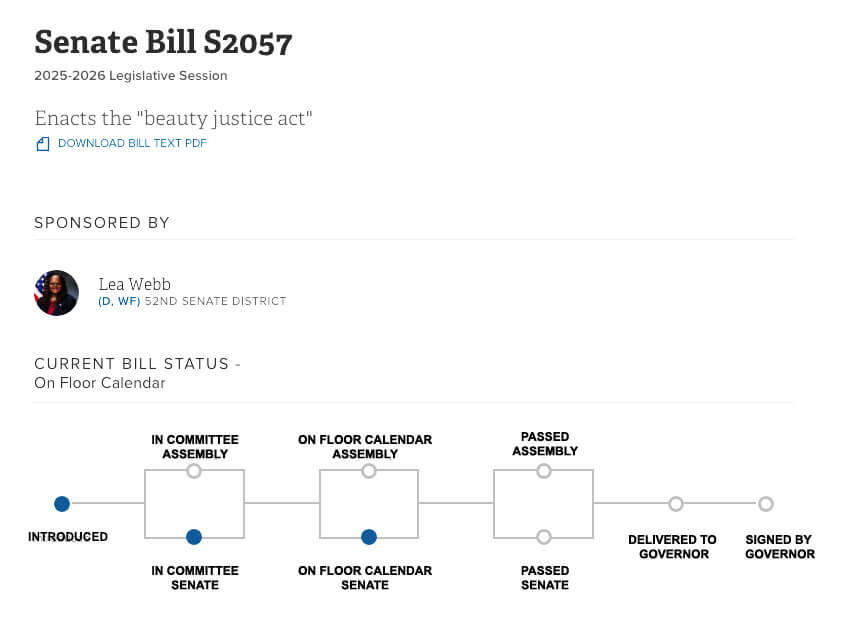Toxic Beauty:
New York’s Bold Step
Toward Cosmetic Justice
In a country where beauty has often come at a hidden cost, the New York State Senate has taken a bold and overdue step with the introduction of the Beauty Justice Act—a bill, S2057, that seeks to ban a long list of toxic substances from personal care products and cosmetics sold within the state. While most of us reach for our daily lotions, shampoos, or makeup without a second thought, the reality is that many of these items are laced with chemicals linked to hormone disruption, infertility, neurological damage, and cancer. The Beauty Justice Act doesn’t just acknowledge this disturbing truth—it dares to confront it.
This legislation is rooted in startling data. According to the Environmental Working Group, the average woman applies 12 personal care products each day, exposing herself to 168 chemical ingredients. For men, it’s 85 unique chemicals across six products. That exposure isn’t benign. A landmark NIH study involving more than 46,000 women found that regular users of hair dyes and straighteners, especially women of color, had significantly higher rates of breast cancer. These numbers aren’t mere correlations; they are red flags waving in plain sight.
The act proposes banning known carcinogens like formaldehyde, benzene, and coal tar—chemicals still legally found in American products, despite being banned or heavily restricted in over 40 countries including Canada, the EU, and even Vietnam. The federal government has lagged behind for decades. While the 2022 Modernization of Cosmetics Regulation Act introduced long-needed updates, it fell woefully short of banning harmful ingredients. The Beauty Justice Act steps into this regulatory void with the force of science and social conscience.
What makes this legislation particularly powerful is its equity focus. Communities of color are disproportionately targeted by beauty marketing and exposed to more toxic products. Straighteners, skin lighteners, and fragranced products aimed at these consumers often contain the very substances this bill aims to ban. The act is more than a regulatory correction, it is a public health and racial justice imperative.
And yet, even with its strengths, the bill leaves room for improvement. One area that warrants urgent attention is fragrance. Despite being among the most chemically complex and least regulated components of personal care products, “fragrance” still remains a legal black box often hiding dozens of undisclosed ingredients, many of which are harmful. The bill mentions “intentionally added ingredients” including fragrance components, but it does not go far enough in requiring full transparency or eliminating endocrine-disrupting fragrance compounds like phthalates.
Moreover, while the bill appropriately tackles intentionally added toxicants and even some nonfunctional contaminants, it does not establish mandatory labeling for consumers. The absence of a clear, front-of-pack warning system similar to those used for food allergens undermines the public’s right to make informed choices, especially when it comes to products used on infants, pregnant individuals, or people with compromised health.
Another omission is the lack of clear worker protections. Salon professionals are routinely exposed to higher levels of these same chemicals through chronic occupational use. They deserve not only safer products but training and resources to reduce exposure in the interim. The bill should include provisions for workplace safety education and funding for transitioning salons to safer alternatives.
The Beauty Justice Act is a monumental leap forward – courageous, scientifically justified, and morally urgent. But to truly live up to its name, it must close the remaining gaps that leave the most vulnerable still at risk. Transparency, consumer education, and protections for frontline workers are not afterthoughts they are the backbone of what real justice in the beauty industry demands.
This bill marks a cultural turning point, where beauty and health are no longer at odds, and where the products we use every day begin to reflect the value we place on human life and dignity. Now it’s time to see if New York has the political will to finish the job.

